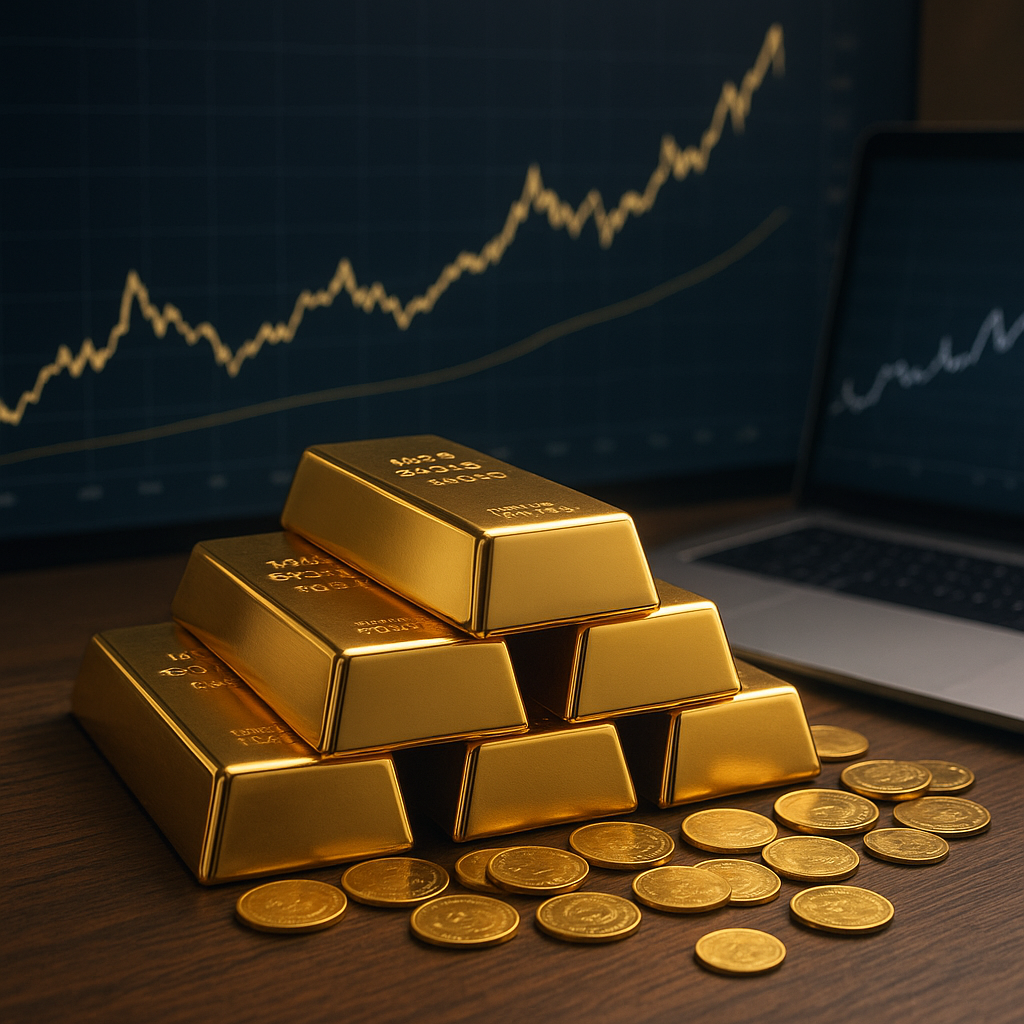Gold has long been considered a safe haven for investors, a tangible asset that retains value even in times of economic uncertainty. However, the price of gold is not immune to fluctuations, and one of the key factors influencing these changes is speculation. Understanding the role of speculation in gold price fluctuations is crucial for investors, economists, and policymakers alike.
The Nature of Gold as an Investment
Gold has been used as a form of currency and a store of value for thousands of years. Its unique properties, such as its rarity, durability, and universal acceptance, make it an attractive investment. Unlike paper currency, gold is not subject to inflationary pressures, which is why it is often seen as a hedge against inflation and currency devaluation.
Investors typically turn to gold during times of economic instability, geopolitical tensions, or when they anticipate a decline in the value of fiat currencies. This demand for gold as a safe haven can drive up its price. However, the gold market is also influenced by other factors, including interest rates, currency strength, and, importantly, speculation.
Understanding Speculation in the Gold Market
Speculation involves buying and selling assets with the expectation of making a profit from price changes. In the context of the gold market, speculators are traders who buy gold not for its intrinsic value or as a long-term investment, but rather to profit from short-term price movements.
Speculators play a significant role in the gold market by providing liquidity and helping to determine prices. They often use futures contracts, options, and other derivatives to bet on the future price of gold. These financial instruments allow speculators to leverage their positions, potentially amplifying both gains and losses.
The actions of speculators can lead to increased volatility in the gold market. For example, if a large number of speculators believe that the price of gold will rise, they may buy gold futures contracts, driving up the price. Conversely, if they anticipate a decline, they may sell off their positions, causing the price to fall.
The Impact of Speculation on Gold Price Volatility
Speculation can lead to significant price swings in the gold market, sometimes detached from the underlying fundamentals. This volatility can be both a boon and a bane for different market participants. For traders and speculators, volatility presents opportunities to profit from price movements. However, for long-term investors and those using gold as a hedge, excessive volatility can be concerning.
One of the challenges in assessing the impact of speculation on gold prices is distinguishing between speculative activity and other market forces. For instance, geopolitical events, changes in monetary policy, and shifts in global economic conditions can all influence gold prices. Speculators often react to these events, amplifying their effects on the market.
Moreover, the rise of algorithmic trading and high-frequency trading has added another layer of complexity to the gold market. These trading strategies can exacerbate price movements, as algorithms react to market signals and execute trades at lightning speed. This can lead to rapid and sometimes unpredictable price changes, further contributing to market volatility.
Regulatory Considerations and Market Stability
Given the potential for speculation to cause significant price fluctuations, there is ongoing debate about the need for regulatory oversight in the gold market. Some argue that increased regulation could help stabilize prices and protect investors from excessive volatility. Others contend that regulation could stifle market efficiency and innovation.
Regulatory bodies, such as the Commodity Futures Trading Commission (CFTC) in the United States, monitor trading activity in the gold market to ensure transparency and prevent market manipulation. However, the global nature of the gold market, with trading occurring across multiple exchanges and jurisdictions, presents challenges for regulators.
Efforts to enhance market stability often focus on improving transparency and reducing the potential for market manipulation. This includes measures such as position limits, reporting requirements, and increased scrutiny of trading practices. By fostering a more transparent and fair market environment, regulators aim to mitigate the impact of speculative activity on gold prices.
The Future of Speculation in the Gold Market
As the gold market continues to evolve, the role of speculation is likely to remain a key factor influencing price fluctuations. Technological advancements, such as blockchain and digital gold trading platforms, may further transform the market, offering new opportunities and challenges for speculators and investors alike.
Additionally, the growing interest in sustainable and ethical investing could impact the gold market. Investors may increasingly consider the environmental and social implications of gold mining and production, influencing demand and, consequently, prices. Speculators will need to adapt to these changing dynamics, incorporating new factors into their trading strategies.
Ultimately, while speculation will continue to play a role in gold price fluctuations, a comprehensive understanding of the market’s complexities and the interplay of various factors will be essential for navigating the ever-changing landscape of gold investment.












